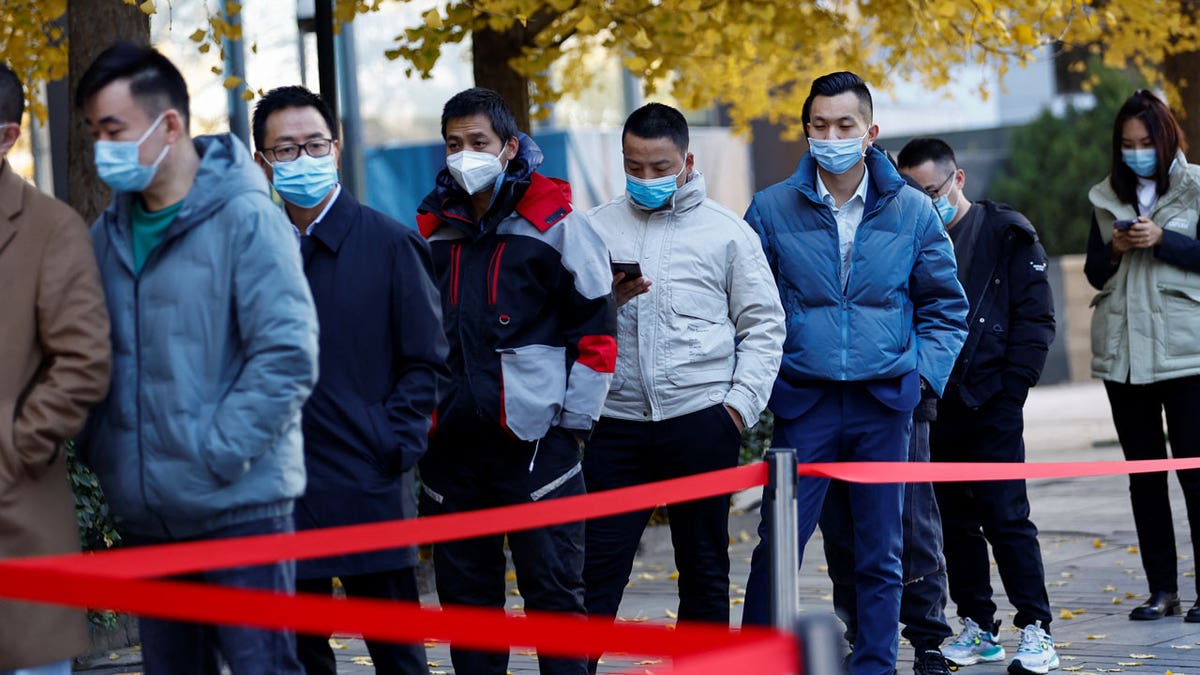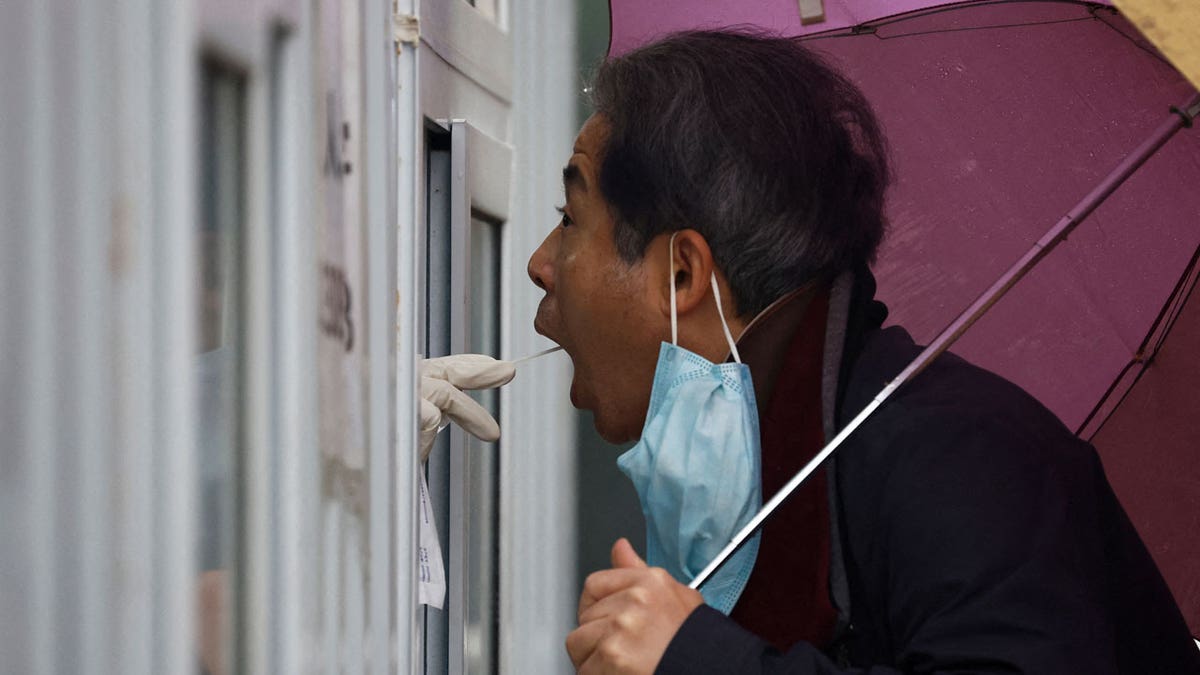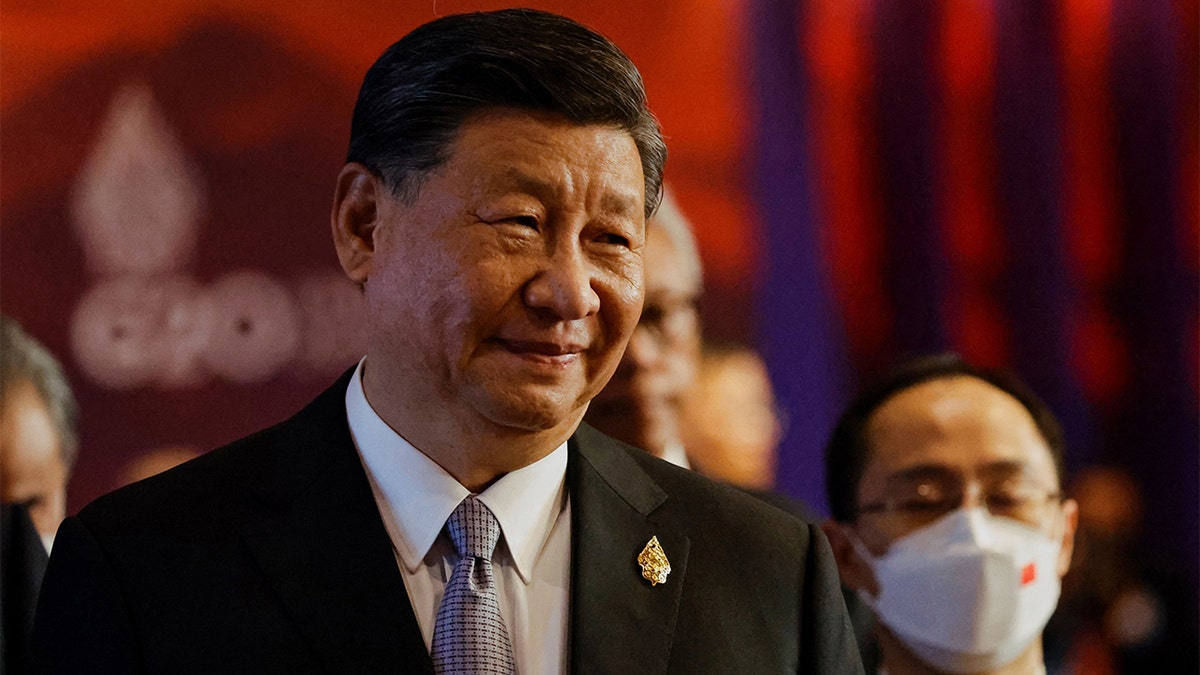Report says $20 million in military research going to China
Openthebooks.com founder Adam Andrzejewski unpacks a watchdog report that says $20 million in U.S. military research is going to Chinese institutions.
Economists for the Chinese Communist Party are weighing the value of a cash infusion for Chinese citizens in the form of a check.
Strict COVID-19 precautions persist in China as the country still struggles to be rid of the viral pandemic. The government's zero-tolerance policy for COVID-19 infections has had cascading ramifications on China's economy and consumers.
Chinese economists are now saying a cash infusion might be what the country needs to get back on its feet.
CHINA CONFIRMS FIRST COVID-19 DEATH SINCE MAY AS AUTHORITIES TRY TO CLAMP DOWN ON RISING CASES

Chinese citizens line up for COVID tests in Beijing. Unrest over continued restrictions and surging cases has fueled recent protests. (Reuters/Tingshu Wang)
"Central fiscal expenditures are important because the local finances are all in a tight situation right now, and even if there are some local governments that have a fiscal surplus, I don’t think they are that generous," said Director Mao Zhenhua of Renmin University's Institute of Economic Research.
Mao went on to claim China would best serve its consumer population by forgoing merchant coupons and non-cash vouchers in favor of electronic currency. Mao suggested vouchers worth approximately $700US.
"Many of the consumer vouchers we mentioned before are actually discount coupons from merchants, they don’t have a cash value," Mao added.
TAIWAN OFFICIALS HAVE RARE RUN-IN WITH XI JINPING AT ASIA TALKS

A man has his swab sample taken at a testing booth, in Beijing, China on Nov. 11, 2022. (Reuters/Tingshu Wang)
China recently confirmed its first COVID-19 death in nearly six months as the country deals with yet another recent outbreak of infections.
On Sunday, China’s National Health Commission reported the COVID-19 death of an 87-year-old man in Beijing. The last reported death was in Shanghai on May 26.
While China has an overall vaccination rate of more than 92% having received at least one dose, that number is considerably lower among the elderly – particularly those over age 80 – where it falls to just 65%. The commission did not give details on the vaccination status of the latest deceased.
CLICK HERE TO GET THE FOX NEWS APP

China's President Xi Jinping attends a session during the G-20 Summit on the Indonesian resort island of Bali on Nov. 16, 2022. (Willy Kurniawan/Pool/AFP via Getty Images)
That vulnerability is considered one reason why China has mostly kept its borders closed and is sticking with its rigid "zero-COVID" policy that seeks to wipe out infections through lockdowns, quarantines, case tracing and mass testing, despite the impact on normal life and the economy and rising public anger at the authorities.
Nearly three years into the pandemic, while the rest of the world has largely opened up and the impact on the Chinese economy rises, Beijing has mostly kept its borders closed and discouraged travel even within the country.
Fox News' Bradford Betz contributed to this report.
